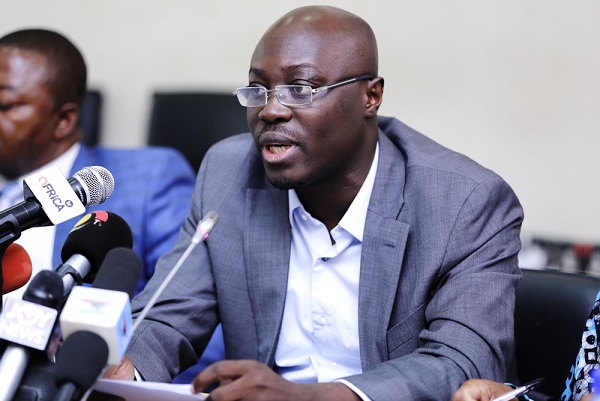Gov’t aims for tax revenue at 18% of GDP
Finance minister nominee Cassiel Ato Forson has stated that government is targetting a significant boost in tax revenue, aiming to increase its contribution to Gross Domestic Product (GDP) from the current 13.8 percent to 18 percent in the medium-term.
This was disclosed during his vetting in parliament on Monday, January 13, 2025.
According to Dr. Forson, the country has substantial untapped potential in tax revenue mobilisation which can be harnessed without imposing additional taxes.
“We do not necessarily have to increase taxes to generate revenue, there is a need to improve compliance and address inefficiencies in the tax system,” he said.
He believes that the aspirational target of achieving a 20 percent tax-to-GDP ratio by 2027 was overly ambitious, given current challenges.
A revised study titled ‘Survey of the Ghanaian Tax System’, conducted by the Ministry of Finance in collaboration with TaxDev researchers from the Institute for Fiscal Studies (UK) and published in 2024, revealed that although the prevailing tax-to-GDP ratio is nearly six percentage points higher than in 2000, it has shown limited improvement since 2017 and continues to fluctuate.
While the nation’s tax-to-GDP ratio aligns closely with the average for sub-Saharan African countries, it falls slightly below the global average for nations with similar income levels. Among 28 lower-middle-income countries with available data, Ghana ranked 16th in 2022.
The growth in domestic tax revenues since 2000 has largely been driven by increases in corporate income tax, personal income tax and value-added tax (VAT).
Together, these three tax categories accounted for nearly 70 percent of total tax collections in 2022 – up from 57 percent in 2000. However, revenue growth from personal income tax and VAT has stagnated in recent years.
Revenue from international trade has become a less significant contributor to the overall tax mix, though it remains important. In 2022 taxes on imported goods, including VAT on imports, made up 33 percent of total tax revenues compared to 54 percent in 2000. Specifically, the contribution of import duties to total tax revenue declined from 18 percent in 2000 to 13 percent in 2022.
The Finance Minister nominee also outlined plans to collaborate with the Ghana Revenue Authority (GRA) and Tax Policy Unit of the Ministry of Finance to implement strategies aimed at boosting compliance.
“In the medium-term, my vision – when approved – is raising the tax-to-GDP ratio to between 16 percent and 18 percent; bringing us closer to the standards of our peers,” he stated.
The nominee also expressed his determination to scrap what he described as ‘nuisance taxes’ – such as the betting tax, which he argued contributes minimally to revenue generation.
“The betting tax brings in less than GH¢50million annually. Scrapping it will have negligible economic consequences but will address public dissatisfaction with such levies,” he added.
Medium-Term Revenue Strategy
The existing government’s Medium-Term Revenue Strategy (MTRS) for 2024-2027 seeks to reform the revenue system to support economic growth while enhancing efficiency and equity.
The strategy aligns with the 2023 Ghana National Revenue Policy (GNRP), which sets ambitious targets including achieving an 18-20 percent tax-to-GDP ratio and a four percent non-tax-to-GDP ratio.
These objectives are expected to be achieved through a series of comprehensive revenue measures designed to increase revenue productivity, broaden the tax base and ensure equitable distribution of the tax burden. The strategy also aims to meet a revenue-to-GDP ratio of 18.7 percent by 2027.
Tax exemptions concerns
Addressing tax exemptions, Dr. Forson criticised the current framework, describing it as inefficient and inequitable.
“Tax exemptions have become a major source of tax expenditure, often benefitting specific companies disproportionately while burdening others,” he observed.
He singled out the previous administration’s flagship One District One Factory (1D1F) initiative, asserting that its tax exemption policies lack transparency and consequently accountability.
“If government insists on granting exemptions under 1D1F, they should enshrine it in law to ensure equal opportunities for all,” Dr. Forson argued.
He maintained that selective application of tax exemptions creates an uneven playing field, adding: “Taxation must be fair. No individual or company should receive undue privileges at the expense of others”.
Dr. Forson reiterated his commitment to balancing revenue mobilisation with economic growth. While scrapping certain taxes, he emphasised the importance of addressing inefficiencies and enforcing compliance to achieve government’s revenue targets.
He is confident the proposed reforms will aid government to bolster public confidence in the tax system, enhance economic productivity and lay the groundwork for sustainable fiscal management.



